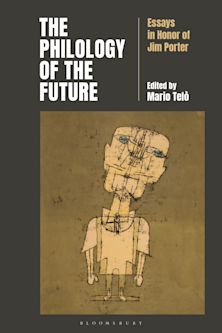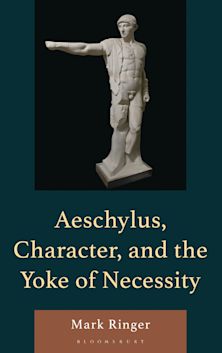Readings of Plato's Apology of Socrates
Defending the Philosophical Life
Readings of Plato's Apology of Socrates
Defending the Philosophical Life
This product is usually dispatched within 1 week
- Delivery and returns info
-
Free CA delivery on orders $40 or over
Description
In Plato’s Apology of Socrates we see a philosopher in collision with his society—a society he nonetheless claims to have benefited through his philosophic activity. It has often been asked why democratic Athens condemned a philosopher of Socrates' character to death. This anthology examines the contribution made by Plato’s Apology of Socrates to our understanding of the character of Socrates as well as of the conception of philosophy Plato attributes to him. The 11 chapters offer complementary readings of the Apology, which through their different approaches demonstrate the richness of this
Platonic work as well as the various layers that can be discerned in its presentation of Socrates.
While the contributions display variety in both topics and angles, they also share common features: An awareness of the importance of the literary aspects of Plato’s courtroom drama, as well as a readiness to take into consideration the historical context of the work. Thereby they provide contributions to a manifold understanding of the aims and impact of the work, without losing sight of the philosophical questions that are raised by Socrates’ confrontational and unrepentant defense speech. Allowing the character of Socrates to take center stage, the chapters of this volume examine the philosopher in relation to ethics, and to politics and democracy, as well as to the ideology, religion, and virtue shared by the Athenians.
Readers will also find reflections on classical Platonic subjects such as the nature of Socratic philosophical inquiry and of philosophy itself, as well as on the notoriously ambiguous relationships between philosophy, sophistry and rhetoric, and their several relationships to truth and justice. The anthology emphasizes and explores the equivocal and sometimes problematic aspects of Socrates as Plato presents him in the Apology, illuminating why the Athenians let the verdict fall as they did, while drawing out problematic features of Athenian society and its reaction to Socrates’ philosophic activity, thereby encouraging reflection on the role philosophy can play in our modern societies.
Table of Contents
Chapter 1: A Shameless Socrates on Trial in Democratic Athens
Arlene Saxonhouse
Chapter 2: Philosophy, Democracy and Poverty: The Philosopher as Political Agent in Plato' Apology
Oda Tvedt
Chapter 3: The Temporality of Philosophy in the Apology
Kristin Sampson
Chapter 4: Plato's Socrates in the Apology: Speaking in Two Voices
Knut Ågotnes
Chapter 5: Socrates' Daimonic Ethics: Myth and Heroism in Plato's Apology
Jacob Howland
Chapter 6: Plato's Apologies
Gro Rørstadbotten
Chapter 7: The Character of Socrates in Plato's Apology: An Aristotelian Analysis
Hallvard Fossheim
Chapter 8: Socrates' Failure: Language and Lies in Plato's Apology
Olof Pettersson
Chapter 9: Self-Images of Socrates. Respect for Tradition and Critical Examination in Plato's Apology
Elena Irrera
Chapter 10: Socrates' Mission
Paul Woodruff
Chapter 11: The Philosophical Force of Negativity: Elenchos and Socratic Conversation in Plato's Apology
Vivil Valvik Haraldsen
Product details
| Published | Dec 28 2017 |
|---|---|
| Format | Hardback |
| Edition | 1st |
| Extent | 256 |
| ISBN | 9781498549998 |
| Imprint | Lexington Books |
| Dimensions | 237 x 159 mm |
| Publisher | Bloomsbury Publishing |
Reviews

ONLINE RESOURCES
Bloomsbury Collections
This book is available on Bloomsbury Collections where your library has access.



































